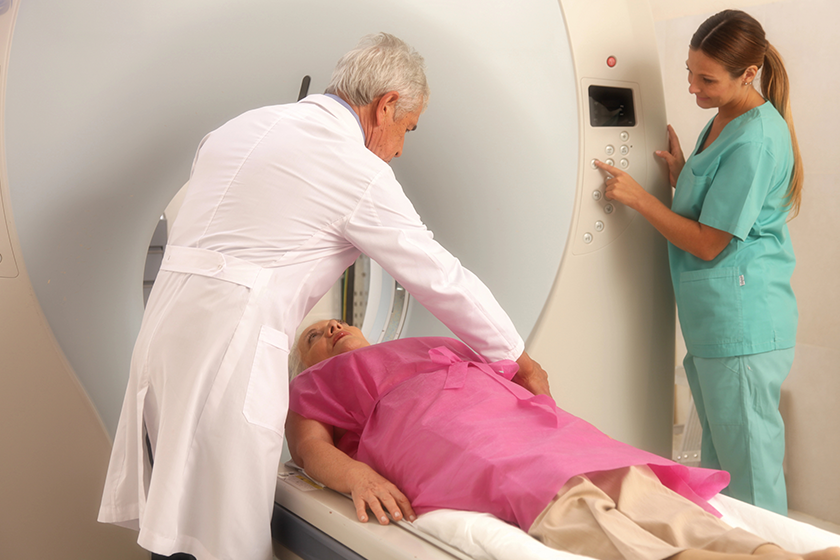Alzheimer’s care providers rely on many tools to give the best possible support to individuals with memory-related challenges. One of the most effective tools for understanding Alzheimer’s progression and planning appropriate care is Magnetic Resonance Imaging (MRI). This imaging technology offers a non-invasive, detailed look at the brain, helping care providers make more informed decisions in diagnosis and treatment.
Understanding MRI’s Role in Alzheimer’s Care
MRI provides high-resolution images of the brain, which is crucial in identifying physical changes associated with Alzheimer’s. Through MRI, Alzheimer’s care providers can assess the size and structure of critical areas of the brain, like the hippocampus, which is often affected by Alzheimer’s. MRI assists care providers in spotting abnormalities that can confirm the presence of Alzheimer’s or distinguish it from other types of dementia.
MRI technology also helps track the disease’s progression over time. For Alzheimer’s care providers, this information is essential in adjusting care plans as residents’ needs evolve.
Early Diagnosis and MRI: A Vital First Step
An early diagnosis of Alzheimer’s can make a significant difference in a person’s quality of life. When Alzheimer’s is detected early, care providers can implement measures that may slow its progression, allowing individuals to maintain independence longer.
MRI scans are critical in the early diagnosis process. While cognitive tests and observations provide initial clues, MRI scans show the physical changes in the brain that are characteristic of Alzheimer’s. By spotting these changes, Alzheimer’s care providers gain a clearer understanding of the condition and can tailor interventions accordingly. This proactive approach supports better outcomes and prepares residents and their families for the road ahead.
Monitoring Alzheimer’s Progression with MRI
Alzheimer’s is a progressive condition, meaning it changes and advances over time. Alzheimer’s care providers use MRI to track these changes, specifically looking at how different areas of the brain are impacted. By comparing MRI scans over months or years, providers can gauge the pace of Alzheimer’s progression.
This information is essential for creating and adjusting care plans. If an MRI shows an increase in brain atrophy, care providers can respond by updating activities and therapies, focusing on maintaining cognitive abilities as much as possible. Regular MRI monitoring empowers providers to support residents with the highest level of care at every stage.
How MRI Helps Alzheimer’s Care Providers Differentiate Between Dementia Types
Alzheimer’s is just one type of dementia, though it’s the most common. Other forms include vascular dementia, Lewy body dementia, and frontotemporal dementia. Since each type affects the brain differently, distinguishing between them is essential for effective treatment.
MRI helps Alzheimer’s care providers identify signs that distinguish Alzheimer’s from other types of dementia. For example, vascular dementia may show areas of restricted blood flow in the brain, while frontotemporal dementia often impacts specific frontal and temporal brain regions more extensively. MRI allows care providers to see these differences, ensuring that residents receive the most appropriate care and support.
Treatment Planning Supported by MRI Insights
MRI scans don’t just aid in diagnosis; they also guide treatment planning. With MRI, Alzheimer’s care providers can develop a more personalized approach, tailoring care to each individual’s unique needs. If MRI scans reveal a steady rate of progression, providers may introduce cognitive exercises, memory aids, and other therapeutic activities to help residents retain their abilities.
MRI insights also support medication management. Some Alzheimer’s medications aim to slow the progression of cognitive decline. Monitoring through MRI can help care providers assess how well these medications are working, allowing adjustments as needed. This level of detail helps ensure that every resident receives care that aligns with their current health status.
Supporting Families with MRI-Based Insights
Alzheimer’s impacts not only the individual but also their family. The knowledge MRI provides helps families understand the disease’s effects on their loved ones. Alzheimer’s care providers often share MRI-based insights to support families in making informed decisions and preparing for what lies ahead.
MRI scans offer families a clearer picture of their loved one’s condition, helping them understand why certain care decisions are made. This transparency can be reassuring, especially as families navigate the challenges of a loved one’s memory-related condition.
Comprehensive Support Through Advanced Insights
MRI is a powerful tool for Alzheimer’s care providers, from early diagnosis to ongoing treatment planning. In our community, residents benefit from a range of dedicated living options, including our specialized Memory Care program, which focuses on person-centered care through our exclusive SHINE® Memory Care curriculum.
If you’re considering care options for a loved one, reach out to learn more about our approach. With advanced resources like MRI-informed care planning and a compassionate, supportive team, we’re here to help families find the right fit for memory support and comfort at every stage.







